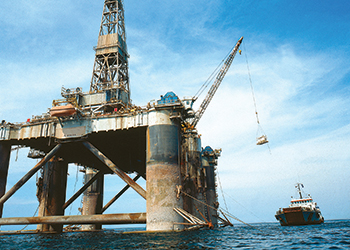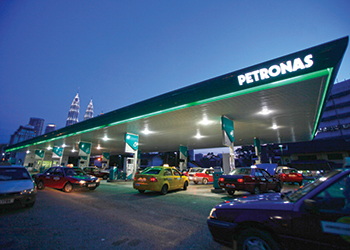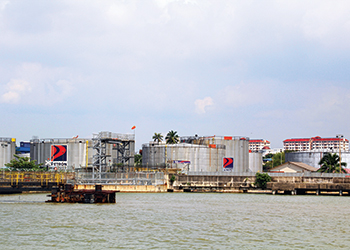
 Petronas … gearing up for tougher times
Petronas … gearing up for tougher times
The company’s CEO says it will have to persevere throughout with more austerity measures, and draw on its cash reserves as it does not expect its cash flow from operations this year to meet its capex and dividend commitments
Malaysia’s state-owned Petronas posted stronger refining margins in the second quarter and saw a near 3.5 per cent growth in crude, condensate and natural gas production, but warned of tougher times ahead as it sees little scope of oil prices recovering in the second half of the year.
Petronas CEO Wan Zulkiflee Wan Ariffin says the acquisition of a 47 per cent stake in Malaysian Refining Company late last year helped the company to boost its refining margins to 'double digits' in the quarter that ended on June 30, from about $8 per barrel in the previous quarter.
'As a result of the increased capacity through this acquisition, we could post stronger refining margins,' Wan Zulkiflee told reporters while announcing the company’s Q2 results in Kuala Lumpur.
'But there is a confluence of events that is not supporting high oil prices,' he says. 'There is a chronic oversupply situation. Therefore, we expect oil prices will remain depressed for the rest of the year.'
Petronas’ buyout of the 47 per cent stake in MRC from Phillips 66 means the Malaysian firm now fully owns the 170,000 barrels per day (bpd) refinery in Melaka. The deal was agreed late last year.
The company said in its presentation that plant utilisation rates at its domestic refineries rose to 86.2 per cent in the second quarter, from 81.4 per cent in the same quarter of 2014.
OUTPUT RISES
Production of crude oil, condensate and natural gas rose 3.62 per cent to 2.29 million bpd of oil equivalent in the second quarter, from 2.21 million boepd in the same quarter last year, mainly because of Petronas’ new production stream in Iraq, which saw higher entitlement and new production in Azerbaijan.
The company posted a 2 per cent drop in crude sales volumes to 53.1 million barrels (590,000 b/d) in the second quarter, while petroleum product sales fell 6 per cent to 71 million barrels. LNG sales also fell 8 per cent to 5.73 million metric tonnes in the second quarter, compared with the year-ago period.
As a result, the company saw its revenue decline 28 per cent year on year to MR61.3 billion ($15.32 billion). Profit after tax declined 47 per cent year on year to MR11.1 billion.
'I do not expect our cash flow from operations this year to meet our capex and dividend commitments,' Wan Zulkiflee says. 'This means that we will have to persevere throughout with more austerity measures, and we will have to draw on our cash reserves.'
Petronas said earlier this year that it would cut its capital expenditure in 2015 and 2016 by between 10 per cent and 15 per cent respectively, slashing up to MR30 billion from its budget over the period.
Replying to a question on whether the current difficult environment would force Petronas to further slash capex, the CEO says: 'We are reviewing projects individually. This is an ongoing exercise.'
Chief financial officer George Ratilal says the company was looking at all projects under the assumption that oil would stay 'below $100 per barrel over the next few years.'
RAPID WORK STARTS
Petronas said it started work on the Refinery And Petrochemical Integrated Development (Rapid) project in the southern Johor state in the second quarter.
Wan Zulkiflee says the project would be completed in the first quarter of 2019 and commercial operations would begin in the second quarter of that year.
The $16 billion project, which includes a 300,000 bpd refinery and a petrochemical complex, will also have an LNG regasification terminal, water supply facilities and a co-generation power plant, will also be built at the site, which will span 6,242 acres (9.8 sq miles).
The refinery will be Malaysia’s largest and will double Petronas’ domestic refining capacity to 637,000 bpd and increase the country’s total refining capacity to 881,000 bpd.
Highlighting other achievements in the second quarter, Petronas said it had achieved the first hydrocarbons from three new fields – two in Malaysia and one in the Bukit Tua field in Indonesia. It also held the steel-cutting ceremony for its second floating LNG facility in South Korea in June, putting the company on track to deploy the PFLNG 2 offshore Sabah in 2018, as part of its long-term LNG business strategy.







































































